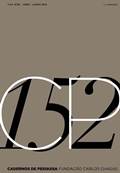Sexualization and subjectivation in assistance practices in Chile
Keywords:
Family, Gender, Care, Social PolicyAbstract
Over the last decade, a vulnerability management model in which the family was positioned as the central agent of social policy has been consolidated in Chile. A qualitative study regarding home intervention practices and home assistance management programs support the view that these policies transform and shape family dynamics, in a gender-related way. Analyzing three dispositive acts, which are characteristic of this type of policies, – to focus, to transfer and to visit –, it can be highlighted how the intervention produces and induces valuations of the place assigned to gender and the mode families organize their social relations “behind closed doors”.
Downloads
References
AHMED, S. The cultural politics of emotion. New York: Routledge, 2004. 224p.
CARDI, C. La construction sexuée des risques familiaux. Politiques sociales et familiales, Paris, n. 101, p. 35-45, Sep. 2010.
CARNEIRO, P.; GALASSO, E.; GINJA, R. The impact of providing psycho-social support to indigent families and increasing their access to social services: evaluating Chile Solidario. Research Paper, Report. 2009.
Disponible en:<http://www.ucl.ac.uk/~uctprcp/chile.pdf>. Acceso en: 23 abr. 2014.
CEFAÏ, D.; GARDELLA, E. L’urgence sociale en action. Ethnographie du Samusocial de Paris. Paris: La Découverte, 2011. 576 p. (Colection Bibliothèque du Mauss)
CHAUVIERE, M. Enjeux de la néo-familialisation de l’État social... In: COLLOQUE INTERNATIONAL ÉTAT ET REGULATION SOCIALE. COMMENT PENSER LA COHERENCE DE L’INTERVENTION PUBLIQUE? 11, 12 et 13 septembre 2006. Paris. Exposition dans le.... Paris: INHA, 2006. 20 p.
CHILE. Ministerio de Planificación y Cooperación. Estudio efectos de la intervención psicosocial em mujeres que participan directamente en el sistema Chile Solidario. Santiago: Mideplan, 2006. 87p. (Cuaderno n. 1. Serie de Estudios Chile Solidario).
CHILE. Protección social y género. Red de Protección Social PROTEGE. Santiago, 2008. Disponible en:
<http://www.chilesolidario.gob.cl/administrador/arc_doc/18869444134adf120843828.pdf>. Acceso en: 18 abr. 2014.
CHILE. Comité de Expertos Ficha de Protección Social: Informe Final. Santiago 2010. 128p.
CORNWALL, A.; GIDEON, J.; WILSON, K. (dir). Reclaiming feminism: gender and neoliberalism. IDS Bulletin, Sussex, n. 39, v. 6, p. 1-9, Dic. 2008.
FASSIN, D. Les économies morales revisitées. Etude critique suivie de quelques propositions,
Annales. Histoire, Sciences Sociales, Paris, n. 64, p. 1237-1266, Jun 2009.
FASSIN. Humanitarian reason: a moral history of the present. Berkeley: University of California
Press, 2011. 336p.
HAN, C. Life in Debt. Times of care ad Violence in Neoliberal Chile. Berkeley: University of
California Press, 2012. 298p.
HOLZMANN, R.; JÖRGENSEN, S. Manejo social del riesgo: un nuevo marco conceptual para la
protección social y más allá. Revista Facultad Nacional Salud Pública, Antioquía, v. 21, n. 1, p. 73-106, ne./jun. 2003.
ILLANES, M. A. Cuerpo y sangre de la política. La construcción histórica de las Visitadoras Sociales (1887-1940). Santiago: LOM, 2007. 498p.
LAUTIER, B. Les politiques sociales à l’épreuve des réformes de marché. Revue internationale de
politique comparée, Paris, v. 17, n. 3, p. 23-55, 2010.
MARTIN, C. Qu’est-ce que le social care? Une revue de questions. Revue Française de Socio-Économie, Paris, n. 2 , p. 27-42, 2008.
MOLYNEUX, M. Change and continuity in social protection in Latin America: Mothers at the Service of the State? Geneva: UNRISD, 2007. 59p. (Gender and Development Programme. Paper n. 1).
NICOLE-DRANCOURT, C.; JANY-CATRICE, F. Le statut du care dans les sociétés capitalistes. Revue Française de Socio-Économie, Paris, n. 2 , p. 7-11, 2008.
RACZYNSKI, D.; SERRANO, C. Las políticas y estrategias de desarrollo social aportes de los años ’90 y desafíos de futuros. In: MELLER, P. (Ed.) La Paradoja Aparente. Equidad y Eficiencia: resolviendo el dilema. Santiago: Taurus, 2005. p. 225-283. Cap. 5.
RÍOS, M.; GODOY, L.; GUERRERO, E. ¿Un nuevo silencio feminista? La transformación de un
movimiento social en el Chile posdictadura. Santiago de Chile: Cuarto Propio, 2003. 380p.
ROJAS, C. Gobernar la extrema pobreza: un análisis del dispositivo de intervención Chile
Solidario-Puente. In: LEMM, V. (Ed.) Michel Foucault: biopolítica y neoliberalismo. Santiago de
Chile: Editorial de la Universidad Diego Portales, 2010. 459p.
SIRVEN, N. De la pauvreté à la vulnérabilité: evolutions conceptuelles et méthodologiques. Monde en développement, Paris, n. 140, p. 9-24, 2007.
STAAB, S. Maternalism, male-breadwinner bias and market reform: historical legacies and recent
reforms in Chilean social policy. Social Politics, v. 19, n. 3, 2012.
STAKE, R. Investigación con estudio de casos. 3. ed. Madrid: Morata, 1999. 160p.
TABBUSCH, C. Género y protección social: las transferencias condicionadas de ingresos en Chile. Textos & Contextos, Porto Alegre, v. 10, n. 2, p. 258-273, ago./dez. 2011.
YIN, R. Case study research. Design and methods. 2. ed. EEUU: Sage, 2003. 173p.
ZELIZER, V. La Signification sociale de l’argent. Paris: Seuil, 2005. 350p.
Downloads
Published
How to Cite
Issue
Section
License

This work is licensed under a Creative Commons Attribution-NonCommercial 4.0 International License.
Authors who publish in this journal agree to the following terms:
a. Authors retain the copyright and grant the journal the right to first publication, with the paper simultaneously licensed under the Creative Commons Attribution license that allows the sharing of the paper with acknowledgment of authorship and initial publication in this journal.
b. Authors are authorized to assume additional contracts separately, for non-exclusive distribution of the version of the paper published in this journal (for example publishing in institutional repository or as a book chapter), with acknowledgment of authorship and initial publication in this journal.
c. Authors are allowed and encouraged to publish and distribute their paper on-line (for example in institutional repositories or on their personal page) at any moment before or during the editorial process, as this can generate productive changes, as well as increase the impact and citation of the published paper (See The Effect of Open Access).









